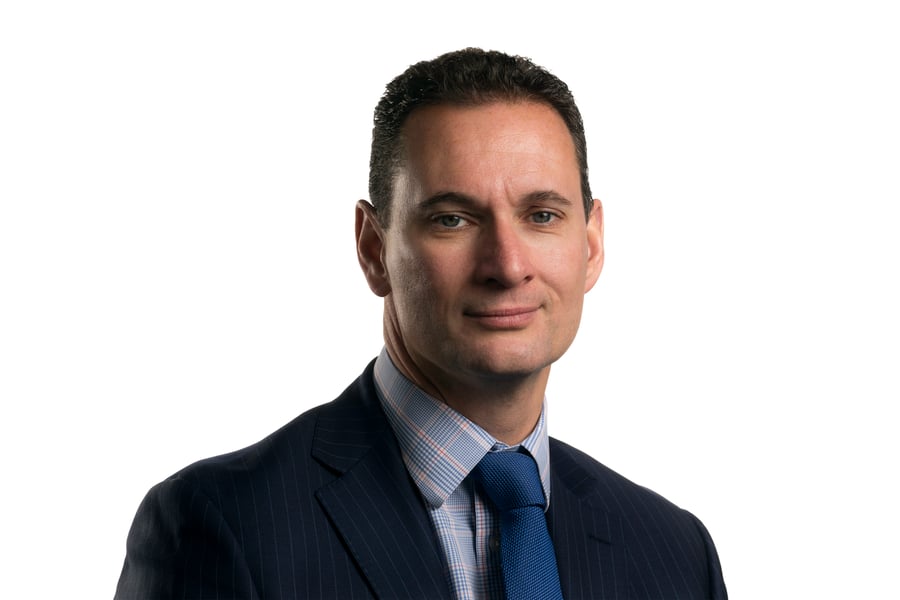As the nights draw in and the heating is turned on earlier, it’s hard to avoid a feeling that this winter comes with a growing sense of uncertainty.

Craig McKinlay is new business director at Kensington Mortgages
As the nights draw in and the heating is turned on earlier, it’s hard to avoid a feeling that this winter comes with a growing sense of uncertainty.
This year we’ve seen empty shelves, fuel shortages and the emergence of a new COVID-19 variant. But something else emerged too; a surprise rate hike by the Bank of England (BoE).
Over the last 12 years, we have become accustomed to an ultra-low interest rate environment. Some homeowners have never experienced high interest rates in their lifetime.
Yet, with inflation now reaching a 10-year high, some may start to feel this soon. It looks very likely that we’ll see a succession of interest rate hikes over the coming years.
Increasing monthly repayments will be a concern for many homeowners. While 2-, 3- and 5-year fixed rate mortgages are the norm and a protection against short-term rate hikes, they won’t protect customers in the long-term from future increases.
As a result, long-term fixed mortgages (already very popular in some parts of continental Europe) are likely to grow in popularity over the next few years.
In a recent survey we commissioned, 83% of respondents would consider a long-term fixed-rate mortgage over a short-term fix if it provided greater certainty of mortgage repayments.
In fact, the Bank of England found in 2020 that long-term fixed rates (five years or more) now account for half of new mortgage lending.
Long-term fixed rate mortgages seem to provide the answer to those customers asking “can I feel confident that my repayments will remain stable further down the line?"
This is clearly a big incentive to those looking for peace of mind, but it also offers increased affordability for those who otherwise may be unable to buy.
One quarter (25%) of renters attempted to purchase a home in the last five years but were unsuccessful and of these, a quarter (25%) could not borrow as much as they needed.
By taking out a long-term fixed mortgage, some prospective homeowners may be able to achieve their homeownership goals, which may have once seemed unattainable.
Some argue that a long-term fixed mortgage is a gamble on the market, by assuming rates will rise and homeowners will not feel the benefits if they fall.
A long-term fixed rate mortgage will not suit everyone, but lenders offering these types of products within its standard range gives customers choice and flexibility with the right advice.
Last month, Kensington Mortgages launched its first Flexible Fixed for Term mortgage product – allowing borrowers to fix the rate anywhere between 11 to 40 years.
The flexible nature of the mortgage means that customers can enjoy a mortgage suited to their lifestyle while enjoying the benefits and security of a fixed repayment. No early repayment charges apply if moving home, selling, or a critical illness or death occurs.
Long-term fixes also give brokers an opportunity too. Greater affordability and a lesser threshold for stress testing provide brokers with a chance to go through their back-books and reassess applications that previously failed the mortgage lender’s requirements.
We won’t deny that long-term fixed rate mortgages could lead to additional work. In light of this, Kensington will provide an enhanced procuration rate of 0.75%, rather than the usual 0.50%, and pay an additional proc fee for porting applications and on further advances, available after one year.
No two people or their circumstances are the same. Whether you're a first-time buyer or homeowner wanting an affordability boost, a self-employed worker worried about remortgaging, or someone wanting greater certainty on monthly repayments – long-term fixed rate mortgages can help.
We may keep our eyes peeled for further BoE rate rises in the months ahead. But with a long-term fixed rate mortgage, buyers can be confident about what they’re paying each month and we can open up the housing ladder to those who have been locked out before. Amidst rising rates, fuel and energy prices, certainty is king.



